Many people assume if your baby is up and busy all day, they will sleep well at night – this is not always the case. The baby is usually so over-tired and over stimulated, that they may have difficulty settling at night. At Night Nannies we believe a baby who has structured and regular sleeps and feeds during the day is more content and will tend to sleep better at night.
In the first few weeks after birth, it’s difficult to introduce any real structure to your new baby’s life. But pretty soon, you’ll find that following a few simple steps during the day will lay the foundations for a good, long-term sleep pattern.
If you are not into a routine, then you don’t have to plan your day around naps and feeds.
But if you are keen for your baby to have a routine, then you could try some of these Night Nanny tips:
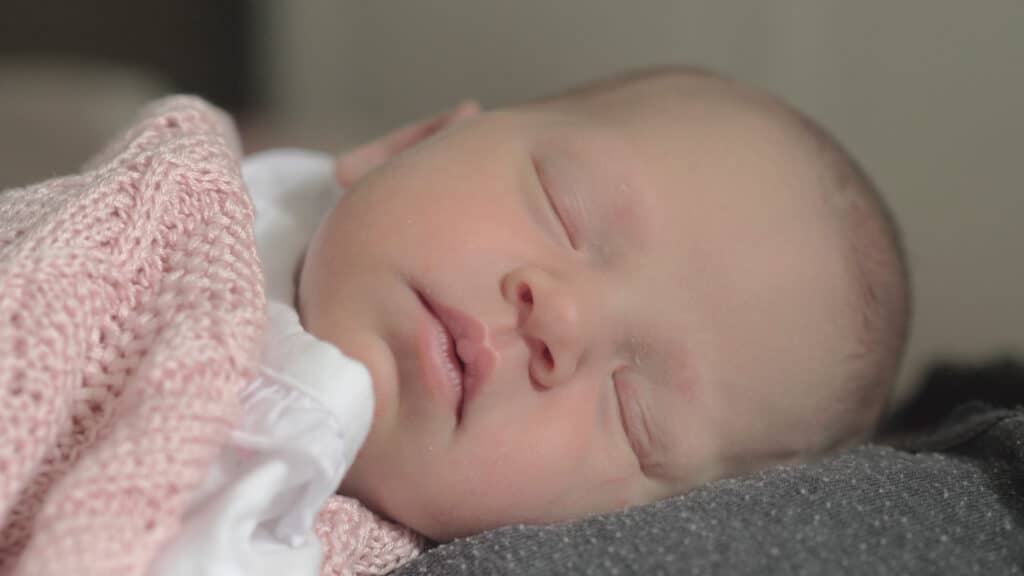
Day Time Nap – From around 4-6 weeks onwards, babies may feed roughly every 3-4 hours and need 20 minutes to half hour naps every 2 hours. Try to encourage a slightly longer 1 or even 2 hour nap around lunchtime – ideally take them to their cot in a darkened room. These lunch time naps, if implemented well, could last until they are 3 years old. You will treasure them!
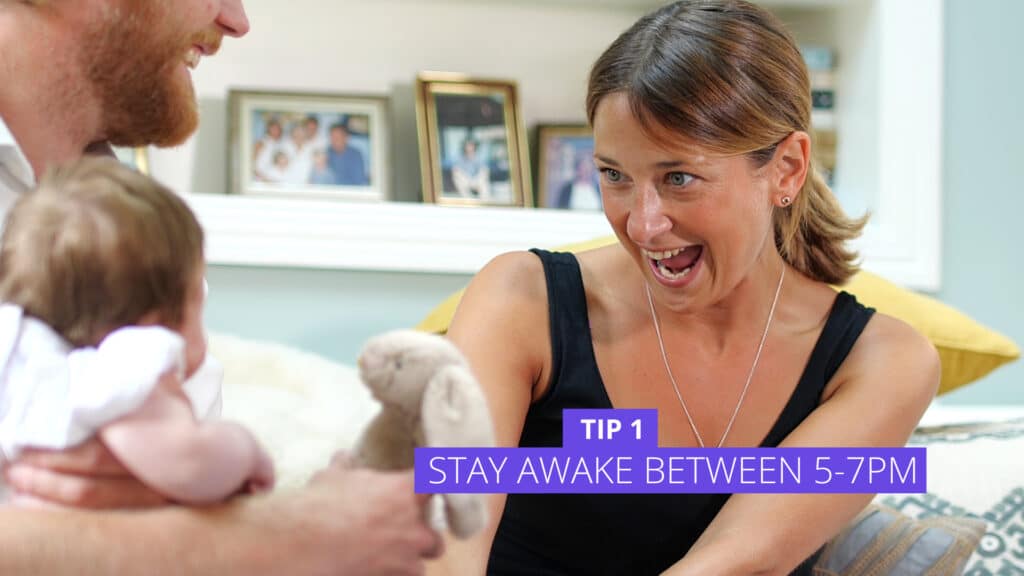
Try to keep your baby awake after 5pm – the idea is that they will then be ready to go to sleep at their 7pm bed-time.

Try and encourage your baby to have a full feed at every mealtime but especially before bed. Often, after taking part of the feed, they will fall asleep. Don’t give up – encourage them to drink more.
You can do this by:
Changing their nappy

Tickling their feet
If it’s a little warm, unwrap them and let them cool them down a little
This will ensure they have a full feed.
Create a Simple Bed-time Routine
Babies respond well to routines, so create and follow a simple and consistent bedtime routine from day one. This routine signals to your baby that sleep is approaching and acts as a sleep cue.
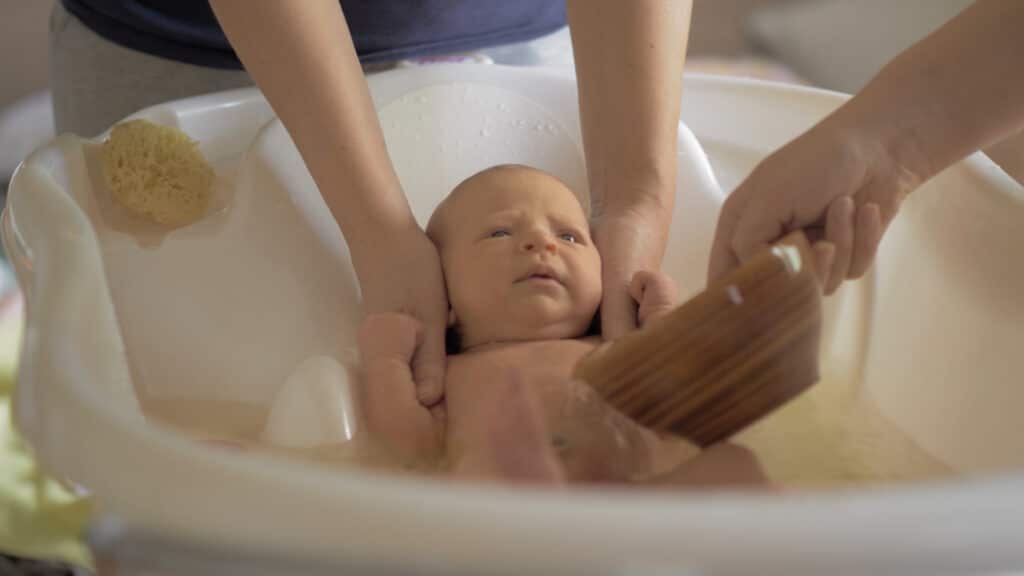
Try a short warm bath
Then a light baby massage
Try a few minutes of a simple book – they won’t understand, but the voice is calming.
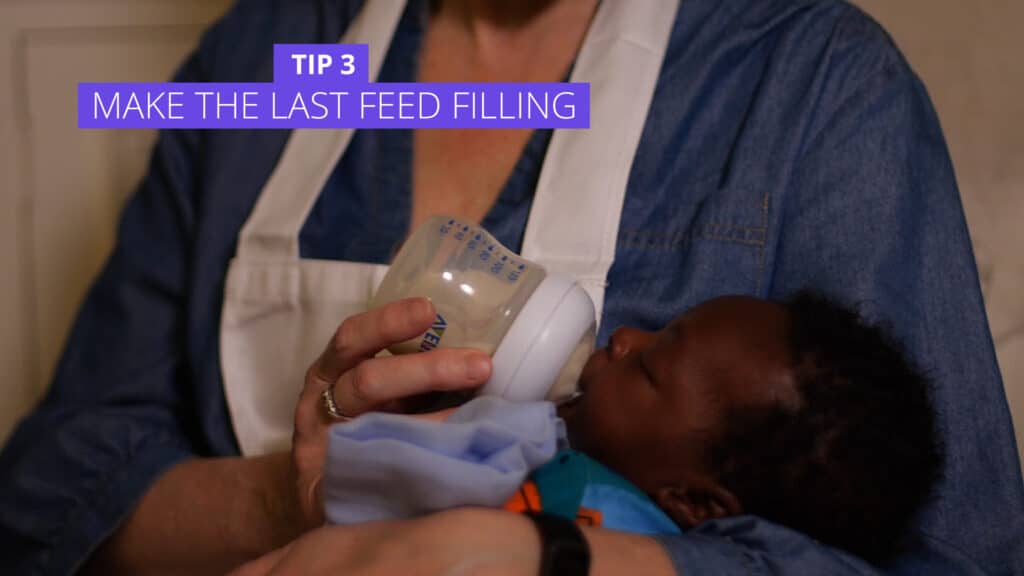
A last feed.
Then a quick final cuddle and into cot.
A calm sleep environment
Turn the TV off or any music and make sure this is nothing too stimulating in their cot – this could distract them from sleeping.
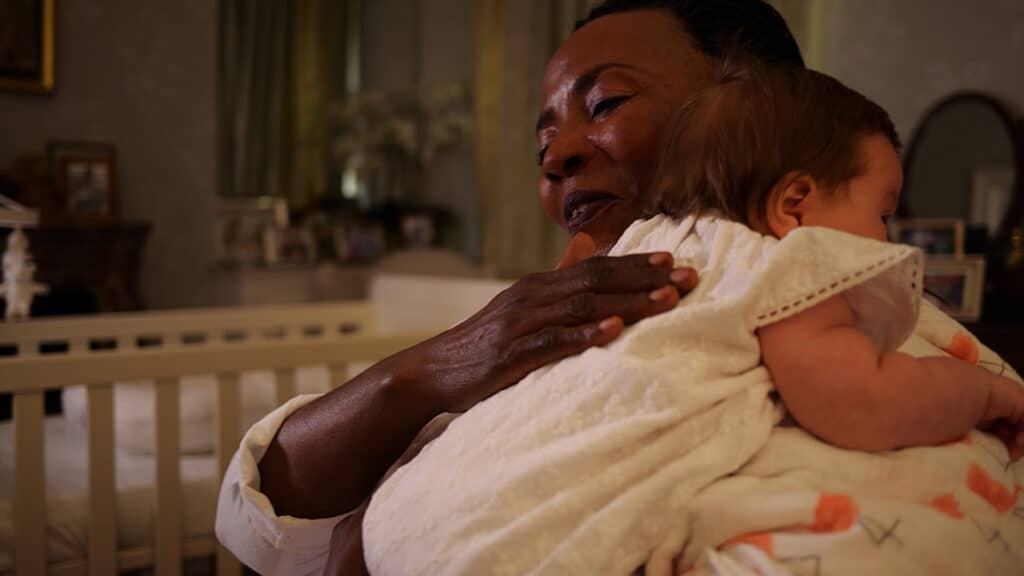
- Make sure your baby’s room is as darkened, you could have a soft night light. Invest in some black out blinds, these are useful for keeping early morning rays out.

- Use a swaddle or a baby sleep sack, this helps create a cosy warm space for your baby.
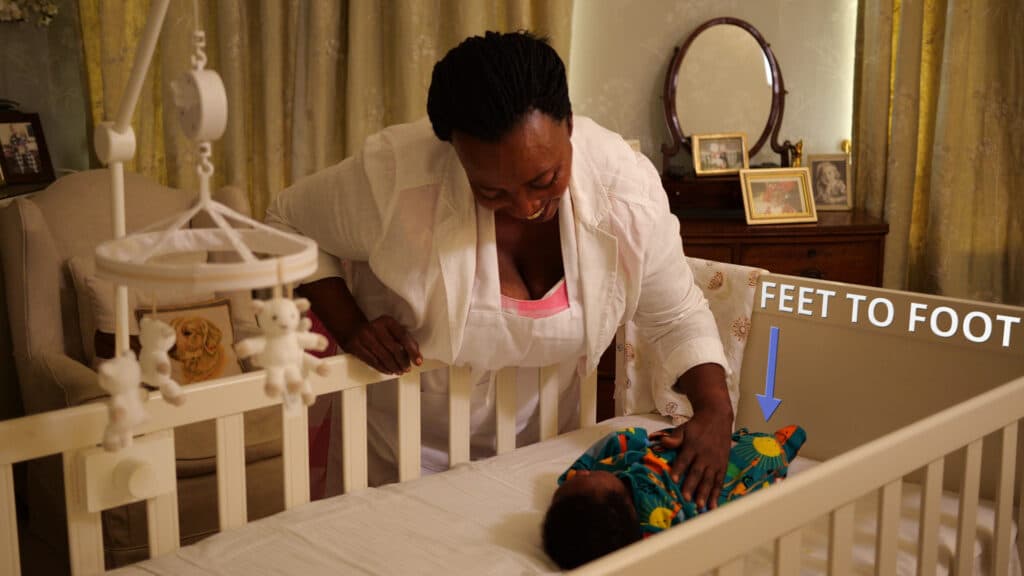
Guide your baby to self settle: Try from the start to put your baby down in the cot AWAKE, so they get used to going to sleep on their own. Don’t get into the habit of rocking your baby to sleep every night – you may be there for hours!
The minute your baby cries it is tempting to rush over to the cot and pick them up. Try not to – try this instead:

Wait a few moments and see if they will settle themselves back to sleep.
If your baby doesn’t settle then you may try patting and singing to them in the cot for a few minutes. Then leave for 2 or 3 minutes.

If you cannot settle your baby and their crying is urgent, pick them up and comfort them but then put your baby back in the cot, soothe and then leave – even if your baby is crying. See if they will settle after a few minutes.
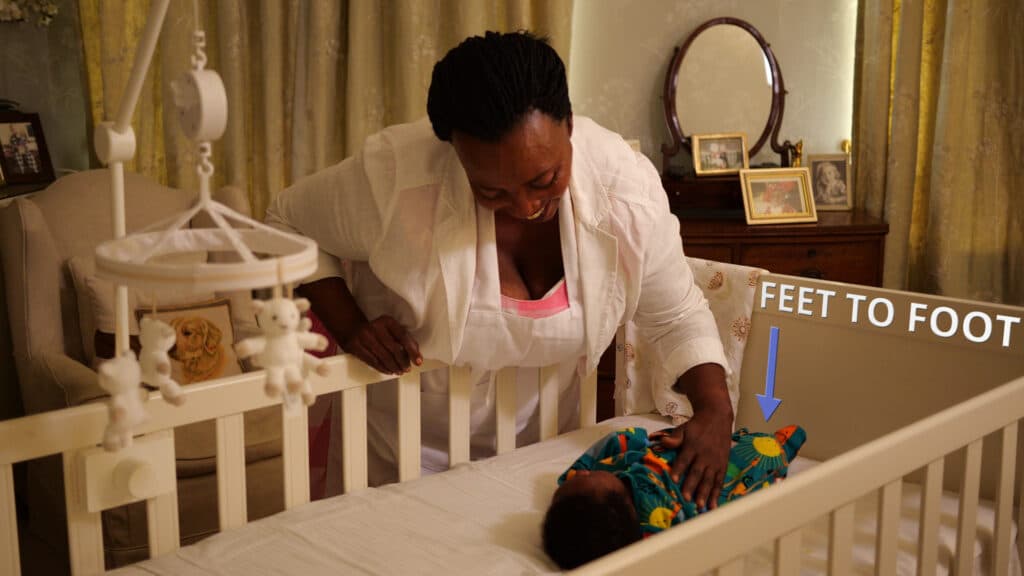
If your baby doesn’t go to sleep then leave them to cry for 3 or 4 minutes and then go back in and repeat the process. Pick them up, wind and then put them in the cot and soothe them. Then leave the room or stand at the back of the room.
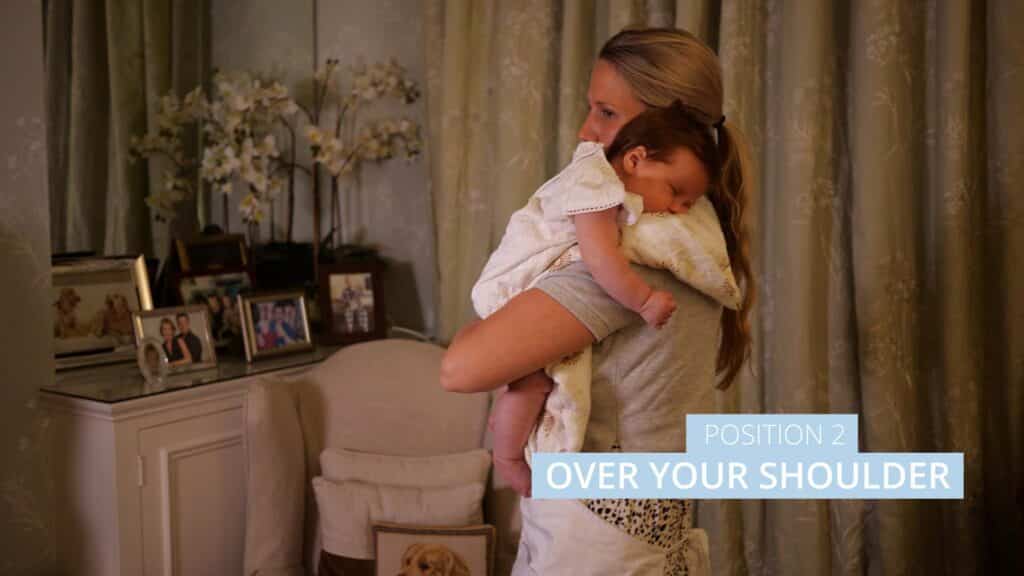
Then wait 3 to 5 minutes and if your baby is still crying – repeat the process. You can try leaving them a little longer each time but never more than 5 to 10 minutes.

